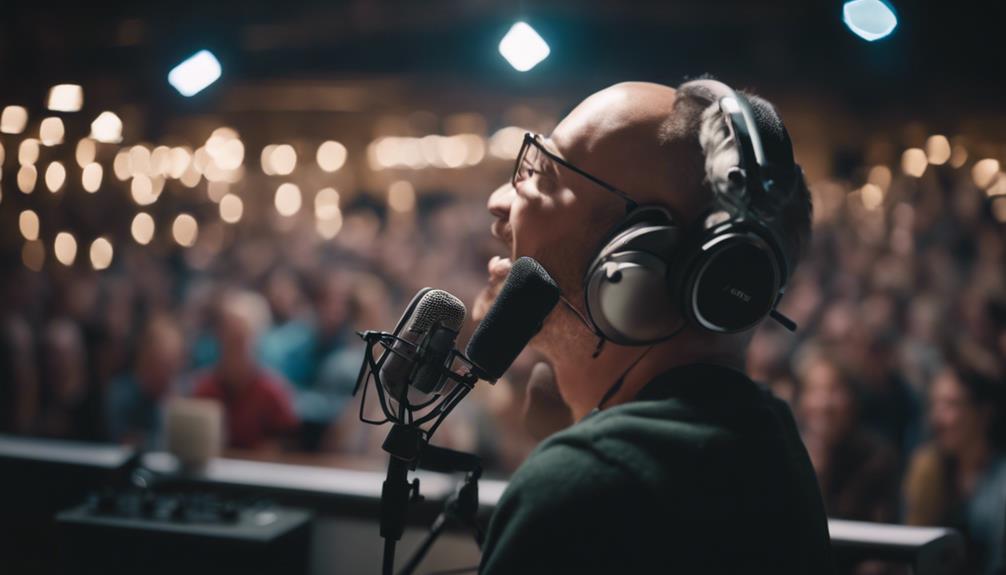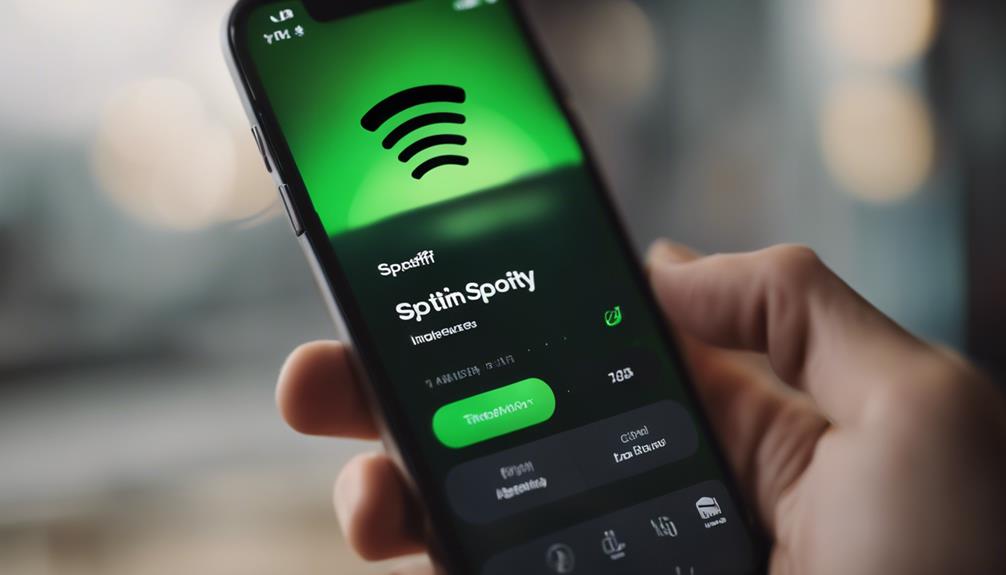When starting your podcasting journey, focus on key steps such as choosing a reliable hosting platform, getting quality recording equipment, and crafting a unique concept. It's crucial to grasp technical aspects like RSS feeds and metadata for success. Develop engaging content with a compelling narrative, emotional connections, and immersive sound design. Building your podcast brand involves maintaining consistency, engaging with listeners, and using SEO techniques. To monetize, explore affiliate marketing, sponsorships, premium subscriptions, and merchandise. Handling audience interaction includes prompt responses, polls, exclusive content, and live events. Embrace these podcasting fundamentals to elevate your show's impact and reach.
Key Takeaways
- Choose a reliable hosting platform like Anchor or Podbean.
- Invest in quality recording equipment for professional sound.
- Develop a unique podcast concept to stand out.
- Understand technical aspects such as RSS feeds and metadata.
- Craft compelling content with engaging storytelling techniques.
Getting Started With Podcasting
Let's start our journey into podcasting by delving into the essentials of getting started. To make sure your podcast stands out, choose a reliable platform like Anchor, Podbean, or Libsyn for hosting and distributing your episodes.
Investing in quality recording equipment, such as a microphone, headphones, and audio editing software, guarantees great audio quality that captivates new listeners. Developing a unique podcast concept that resonates with your target audience is vital to setting yourself apart from competitors.
When starting your podcast, create visually appealing cover art that represents your show effectively and is easy to read. Understanding technical aspects like RSS feeds, metadata, and episode tagging is important for proper distribution and visibility.
Crafting Compelling Content

Crafting compelling content for your podcast involves skillfully identifying unique angles, utilizing strong storytelling techniques, and incorporating engaging formats to captivate listeners. When creating content for your podcast, consider the following:
- Narrative Arcs: Develop a storyline that keeps listeners hooked from start to finish, building suspense and curiosity along the way.
- Emotional Hooks: Connect with your audience on a deeper level by incorporating emotional elements that resonate with their experiences and feelings.
- Sound Design: Enhance the listening experience by using music, sound effects, and editing techniques to create a more immersive and professional production.
Building Your Podcast Brand

Building a strong podcast brand involves several key elements. Consistency in branding elements such as logo, color scheme, and tone is vital for creating a recognizable podcast identity. Engaging with listeners through social media, email newsletters, and websites helps build a loyal audience base. Collaborating with guests, industry influencers, and other podcasters can enhance brand credibility and expand reach within the industry.
Utilizing SEO techniques in podcast titles, descriptions, and show notes can greatly improve discoverability and attract new listeners. It's important to monitor brand metrics like listener demographics, engagement rates, and feedback to continually refine branding strategies and ensure they align with audience preferences and market trends.
Engaging With Your Audience

Engage with your audience by promptly responding to their feedback and questions to foster trust and connection within your podcast community. To enhance engagement further, consider the following strategies:
- Create polls and surveys to involve the audience in decision-making processes and tailor content to their preferences.
- Offer exclusive behind-the-scenes content, bonus episodes, or merchandise to reward loyal listeners and encourage engagement.
- Host live Q&A sessions or virtual events to interact directly with the audience and strengthen the podcast community.
Monetization Strategies for Podcasters

To succeed in the podcasting industry, podcasters must strategically implement various monetization strategies to generate revenue and sustain their content creation efforts. One effective method is affiliate marketing, where podcasters can promote products or services related to their niche to earn commissions.
Additionally, securing sponsorships from companies looking to reach the podcast's target audience through ad placements or mentions can be lucrative. Offering premium subscription options for exclusive content, early access, ad-free episodes, or bonus content can also attract dedicated listeners willing to pay for additional value.
Creating merchandise like t-shirts, mugs, or other branded items provides another revenue stream. Hosting live events, workshops, or webinars that offer value to listeners can't only deepen audience engagement but also generate revenue through ticket sales or partnerships.
Frequently Asked Questions
What I Wish I Knew Before Starting a Podcast?
Before starting a podcast, we wish we knew the importance of time commitment, equipment selection, and consistent content scheduling. Networking with other podcasters for insights and collaborations would have been valuable.
Understanding podcast hosting platforms, analytics, and marketing strategies could have enhanced our reach. Learning these aspects beforehand would have helped us navigate the podcasting landscape more efficiently and effectively.
What Is the Bare Minimum to Start a Podcast?
When starting a podcast, the bare minimum includes a good microphone, reliable recording software, and a hosting platform for distribution. These tools are essential for creating quality audio content.
Understanding your audience and defining your podcast's niche are vital for success. Consistent posting and engaging with listeners help build a loyal following.
Pre-launch preparation and planning are key for a strong foundation. Focus on these basics to kickstart your podcast journey effectively.
How Do I Start a Podcast 101?
When starting a podcast, it's crucial to concentrate on several key areas:
- Research hosting platforms to find one that suits your needs.
- Invest in quality recording equipment to ensure good sound quality.
- Decide on a format that aligns with your podcast's goals and target audience.
- Create compelling cover art that attracts listeners and reflects your podcast's content.
- Develop a launch strategy to promote your podcast effectively.
How Do You Start at the Beginning of a Podcast?
When starting a podcast, we begin by defining our concept, niche, and audience to set a clear direction.
A compelling trailer showcasing our unique value draws in listeners.
Quality recording equipment and editing software guarantee professional sound.
Choosing a suitable hosting platform and distribution channels like Apple Podcasts is essential.
A pre-launch marketing strategy builds anticipation, engages the audience, and generates buzz before airing the first episode.
Conclusion
To wrap up, embarking on a podcast may appear overwhelming initially, but with the right tools and determination, anyone can thrive in this thrilling medium.
Remember, Rome wasn't built in a day, and neither is a prosperous podcast. So take it one step at a time, stay true to yourself, and keep producing content that connects with your audience.
The journey may be challenging, but the rewards are worth it in the end.










